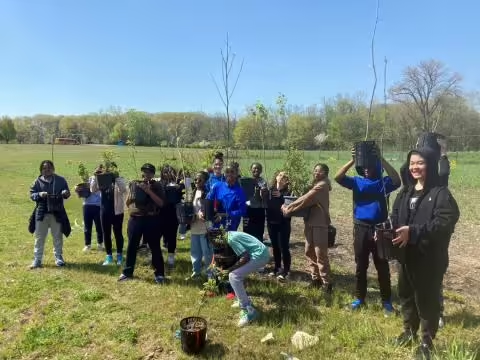A hunger strike that began Tuesday outside of London City Hall, initiated by a group of advocates for the city’s homeless population, is over.
Several days after the hunger strike began, and over a day’s worth of after meetings later, it appears the City of London and #TheForgotten519 have agreed on several solutions. As of 5 p.m. Friday, Dan Oudshoorn, an Outreach Worker and Grassroots Researcher with the coalition is no longer participating in the hunger strike.
Early Friday evening, city officials announced both sides, with help from outside community agencies and workers, have identified and agreed on immediate solutions that will better support Londoners living in encampments, tents, campsites or squats.
“[We] are overwhelmed and grateful to [our] community that made these urgent actions possible. We stand in solidarity with all of the frontline workers and in solidarity with the solutions we have collectively achieved today,” #TheForgotten519 said in a statement. “We have seen the power of the collective voice of the frontlines and how this can achieve change. While this isn’t the way it has always been done, it was a clear demonstration that these things were needed and achievable. We thank everyone who made this possible.”
On Thursday, the city and the #TheForgotten519 met with community partners to discuss solutions to help the city’s most vulnerable after the group listed three demands it wanted the city to comply with within a week’s time. Over a week ago, the city initially said it would not be able to comply with those requests and the hunger strike began on schedule.
Those demands included:
• Immediate ending of the removal of encampments, tents, campsites, or squats in city parks, along the Thames Valley Parkway, and in empty city lots, or lots left to fall into disrepair by the property owners.
• Immediate transition of the City of London’s Coordinated Informed Response (CIR) Team from a displacement model to a team that offers meaningful support (based on the self-identified needs of the campers) to campers at their campsites.
• Immediate creation of two indoor spaces (one in the core, one in the east end) that provide 24/7 support to people deprived of housing and shelter or needing a safe place to be. (This demand was later altered to: begin work immediately on the creation of two indoor spaces.)
During the most recent meetings, the city said those in attendance discussed the immediate needs of people living outdoors.
“The process began with a meeting that brought more than 147 people together to focus on collective solutions. Over the course of the past two days, a smaller working group of 30 people continued the conversation to bring the action plan forward,” a statement from the city of London read.
Some of the action plans the city has agreed to is providing more water and food for acute needs to London Cares and increase access to showers for people living in encampments. Starting August 15, the city will also provide community partners with weekly encampment reports.
The Community Task Force will also begin to train Municipal Law Enforcement Officers on things such as low barrier approached, harm reduction and trauma-informed work.
“We are grateful for the willingness of agencies from across the system to come together. The perspectives of frontline workers, who are seeing and experiencing first hand the impacts of a system that is stretched and broken, are essential in this process,” said Deputy City Manager of Social and Health Development Kevin Dickins. “These have been difficult conversations. It’s clear that everyone who participated is committed to working collectively to affect change, immediately and into the future.”
The @Forgotten519 is so excited to share with #ldnont that in collaboration with our partners & @CityofLdnOnt …… pic.twitter.com/s8HeecUrXv
— The Forgotten 519 (@Forgotten519) August 5, 2022


